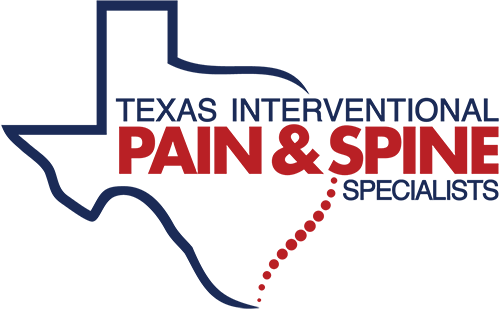Effective communication with your doctor is crucial. Establishing a relationship built on trust and understanding is important As it allows for proper diagnosis and treatment. However, certain things may hinder this process, threatening the quality of care you receive. We will answer what not to say to your pain management doctor. Avoid mentioning alternative treatments that you plan to pursue without consulting your doctor. Refrain from complaining about previous doctors or seeking multiple prescriptions. Maintain open communication and honesty while respecting your doctor’s expertise. By understanding these communications tips, you can ensure a productive and beneficial relationship with your healthcare provider. Let’s explore the keys to effective communication with your pain management victoria tx
Avoiding Negative Statements
It is beneficial to avoid negative statements such as downplaying pain, exaggerating pain levels, requesting specific medications, and challenging their expertise.
1. Downplaying Your Pain
Expressing your pain is crucial for receiving appropriate treatment. While describing your symptoms, it’s understandable that you may want to downplay your pain to appear strong or avoid being perceived as a complainer. Instead of saying, “It’s a minor discomfort,” try explaining your pain’s intensity, location, and duration of your pain. Providing specific details enables your healthcare provider to diagnose more accurately and determine the best course of action.
2. Exaggerating Pain Levels
On the opposite end, exaggerating pain levels can also hinder effective communication. At the same time, it’s crucial to express the severity of your pain. Providing an inaccurate or exaggerated description can lead to misunderstandings and inappropriate treatment. Healthcare professionals rely on accurate information to make informed decisions about your care. By using a balanced approach and describing your pain, you can ensure that you receive the appropriate level of care.
3. Requesting Specific Medications
Discussing your treatment options with your pain management doctor is important, and it is best to avoid requesting specific medications. Your doctor is the medical professional who will determine the most appropriate medications based on your particular condition and needs. Asking specific drugs may come across as demanding or drug-seeking behavior, damaging the trust and rapport between you and your doctor. Instead, focus on describing the effectiveness or ineffectiveness of previous treatments and ask for their recommendations on alternative medications or therapies.
4. Challenging Their Expertise
Trust and respect are fundamental in the doctor-patient relationship. Challenging your pain management doctor’s expertise can undermine confidence and hinder effective collaboration. If you have concerns or questions about your treatment plan, it is important to communicate them. You can ask for clarification or a second opinion if necessary but do so in a way that shows you value your doctor’s expertise and seek the best possible care.
Maintaining a positive and respectful attitude when communicating with medical professionals is essential for effectively managing your healthcare. By approaching these interactions, you can establish a strong rapport with Dr. Umar Mahmood and create a conducive environment for open communication. Effective communication is key to receiving the best possible care and treatment outcomes.
Discussing Alternative Therapies
When considering treatment options, it is crucial to explore non-pharmacological alternatives. These therapies offer additional benefits and can complement traditional medical treatments. You may manage potential solutions for your health concerns by overlooking non-pharmacological opportunities, such as phantom limb pain medication.
1. Rejecting Non-Pharmacological Options:
When discussing treatment options with your pain management doctor, it is crucial to recognize the value of non-pharmacological therapies. Physical therapy, acupuncture, and meditation are non-pharmacological options that can work alongside medical treatments to relieve pain and enhance overall well-being. These alternative therapies can improve treatment outcomes for phantom limb pain medication.
2. Not Mentioning Previous Treatments:
It is essential to inform your doctor about any previous treatments you have undergone. It includes medications, therapies, and surgeries. Sharing this information helps your doctor understand your medical history and make informed decisions about your treatment plan. Be open and honest when discussing your past treatments, ensuring you provide relevant details without sounding dismissive.
3. Not Following Treatment Plans:
Adhering to the prescribed treatment plan is crucial for effective pain management. Communicating any difficulties or challenges you may face while following the procedure is important. By doing so, your pain management doctor can make necessary adjustments or provide extra support. Open and honest communication is key in ensuring your treatment plan is tailored to your needs.
Considering alternative therapies is a personal decision that should always be discussed with healthcare professionals. To ensure a more informed approach to incorporating alternative therapies into your healthcare routine, it is important to avoid these common mistakes. Please note that the Vertiflex procedure cost is subject to discussion with healthcare professionals.
Conclusion:
Effective communication with your pain management doctor is crucial for managing chronic pain. It is important to be mindful of specific phrases and behaviors to avoid to ensure that your doctor comprehends your needs. These include rejecting non-pharmacological options, not discussing previous treatments, or not adhering to treatment plans. Participating in open and honest communication with your pain management doctor can improve your chances of achieving the best possible outcomes in managing your chronic pain. Remember, your doctor’s understanding of your needs will enable them to provide the most suitable care, optimizing your pain management journey and enhancing your quality of life.
